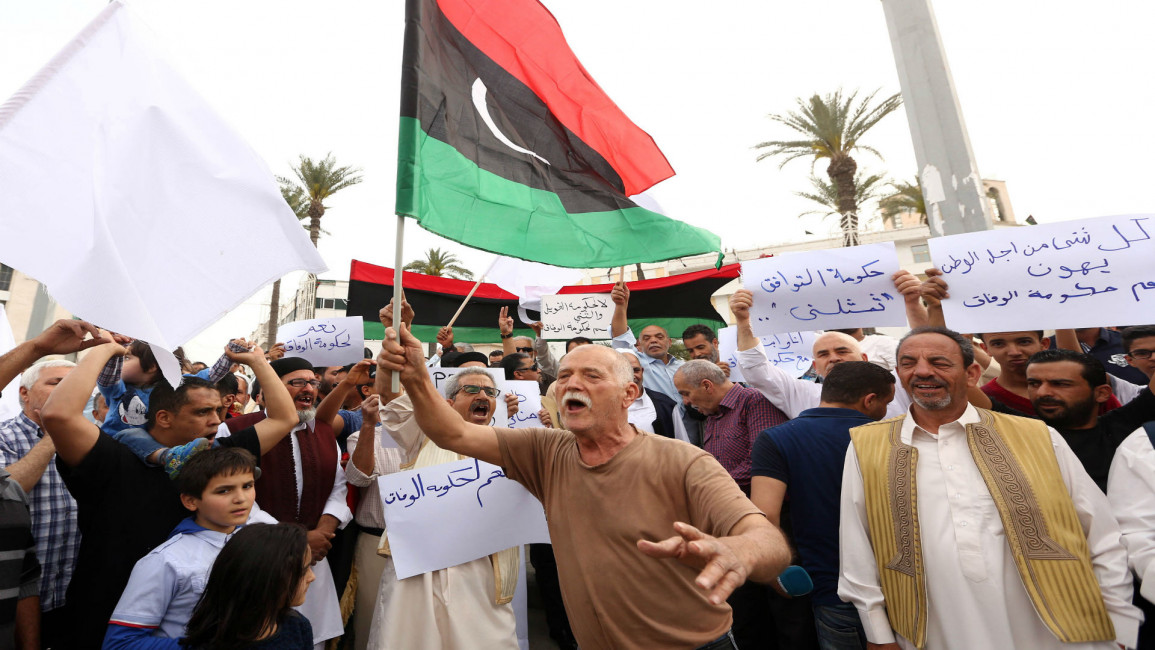Tripoli authorities cede power to UN-backed Libyan unity government
Authorities in Libya's capital said Tuesday they were ceding power to a UN-backed unity government in a major boost to international efforts to end deep political divisions in the strife-torn country.
The move came nearly a week after UN-backed prime minister-designate Fayez al-Sarraj arrived with members of his cabinet in the capital by sea, after the Tripoli authorities closed airspace to keep him out.
The international community has pleaded with Libya's warring sides to unite behind the unity government, which it sees as vital to tackling a jihadist expansion and rampant people smuggling in the North African state.
Libya has had rival governments since a militia alliance seized control of Tripoli in mid-2014, forcing the internationally recognised government to flee to the country's far east.
The Tripoli-based administration said Tuesday that it was stepping aside in the national interests.
"We inform you that we are ceasing the activities entrusted to us as an executive power," said a statement by the Tripoli government.
The statement, bearing the logo of the so-called National Salvation Government headed by Khalifa Ghweil, said the unrecognised Tripoli prime minister, his deputy premiers and cabinet ministers were all stepping aside.
 |
The unity government was formed under a power-sharing deal agreed by some lawmakers in December. |  |
It said the decision was taken "in light of the political developments in Tripoli" and to prevent further divisions and bloodshed.
The Tripoli authorities were "no longer responsible... for what could happen in the future," it added.
Sarraj, a businessman from Tripoli, and his unity government have not yet received the endorsement of the rival internationally recognised parliament in the eastern city of Tobruk.
On Tuesday UN envoy Martin Kobler flew into Tripoli for his first visit since Sarraj's arrival, in another sign of the unity government asserting its authority over the capital.
The UN envoy had himself been prevented from travelling to the capital last month by authorities in charge of the city.
The new government's arrival has raised hopes it will be able to restore some stability in Libya, which has been plagued by chaos since Muammar Gaddafi's 2011 overthrow.
The unity government was formed under a power-sharing deal agreed by some lawmakers in December.
The new administration has been broadening its support, winning the backing of the Libyan Investment Authority, the National Oil Corporation and the Central Bank.
Ten coastal cities that were under the control of the Tripoli authorities have also backed the new government.
Agencies contributed to this report



